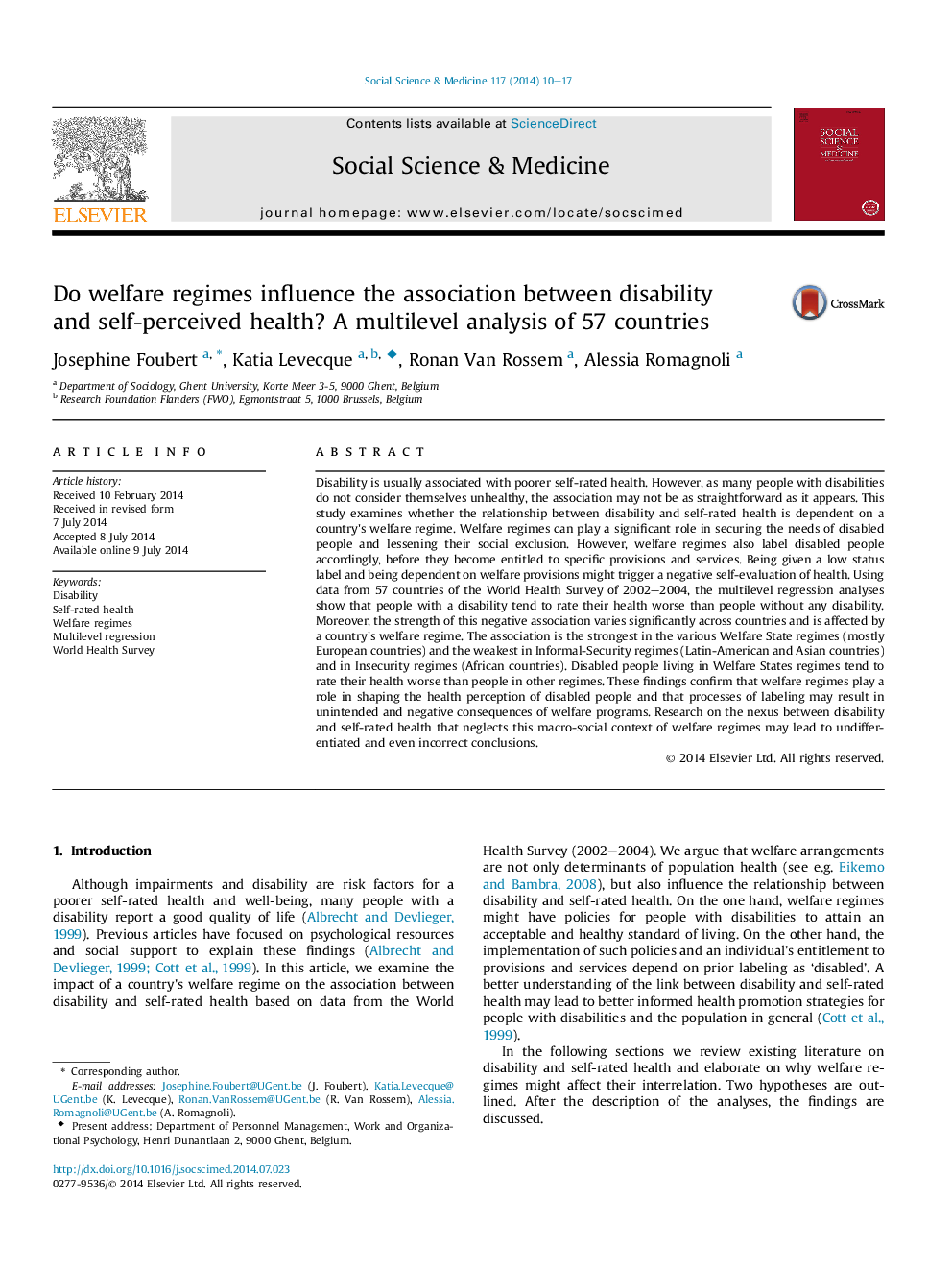| Article ID | Journal | Published Year | Pages | File Type |
|---|---|---|---|---|
| 7334573 | Social Science & Medicine | 2014 | 8 Pages |
Abstract
Disability is usually associated with poorer self-rated health. However, as many people with disabilities do not consider themselves unhealthy, the association may not be as straightforward as it appears. This study examines whether the relationship between disability and self-rated health is dependent on a country's welfare regime. Welfare regimes can play a significant role in securing the needs of disabled people and lessening their social exclusion. However, welfare regimes also label disabled people accordingly, before they become entitled to specific provisions and services. Being given a low status label and being dependent on welfare provisions might trigger a negative self-evaluation of health. Using data from 57 countries of the World Health Survey of 2002-2004, the multilevel regression analyses show that people with a disability tend to rate their health worse than people without any disability. Moreover, the strength of this negative association varies significantly across countries and is affected by a country's welfare regime. The association is the strongest in the various Welfare State regimes (mostly European countries) and the weakest in Informal-Security regimes (Latin-American and Asian countries) and in Insecurity regimes (African countries). Disabled people living in Welfare States regimes tend to rate their health worse than people in other regimes. These findings confirm that welfare regimes play a role in shaping the health perception of disabled people and that processes of labeling may result in unintended and negative consequences of welfare programs. Research on the nexus between disability and self-rated health that neglects this macro-social context of welfare regimes may lead to undifferentiated and even incorrect conclusions.
Related Topics
Health Sciences
Medicine and Dentistry
Public Health and Health Policy
Authors
Josephine Foubert, Katia Levecque, Ronan Van Rossem, Alessia Romagnoli,
